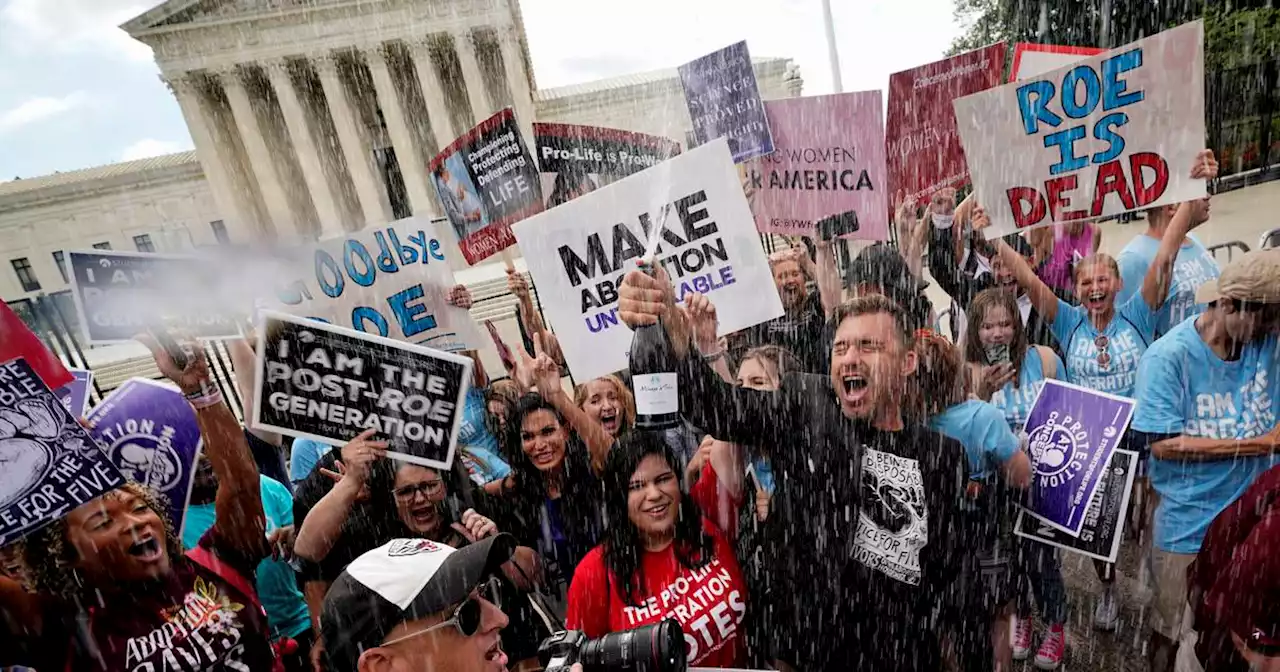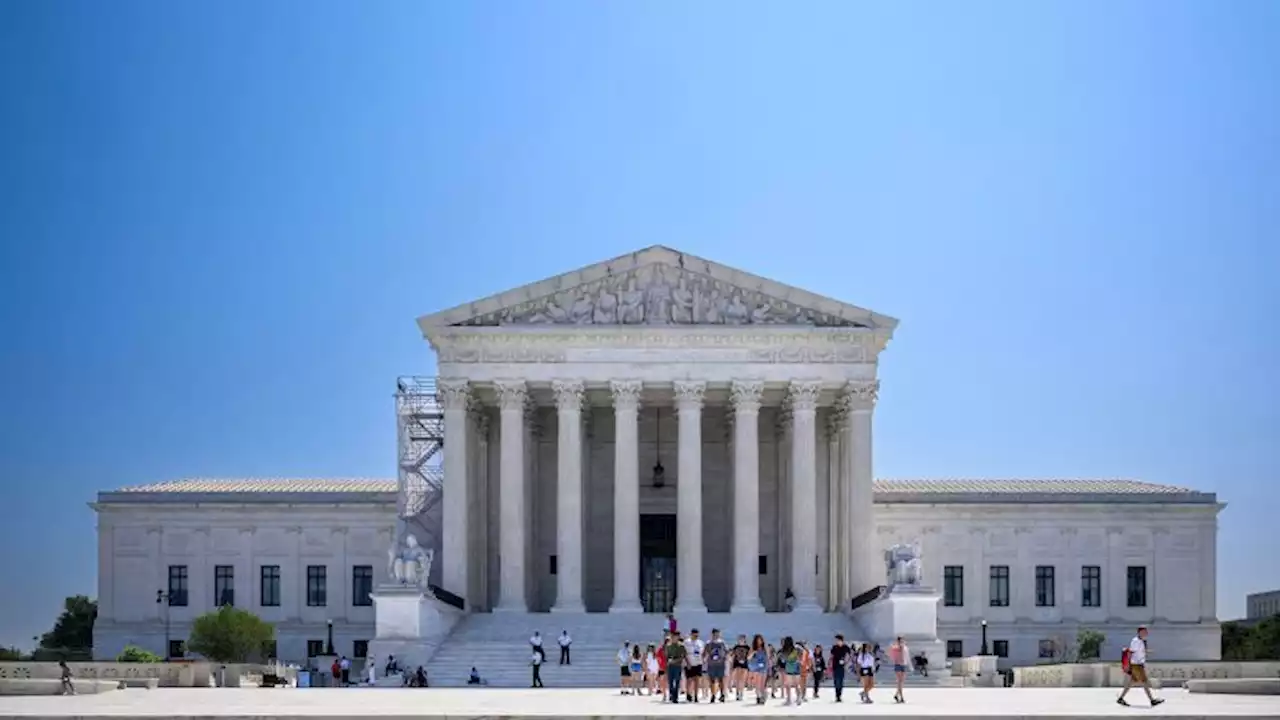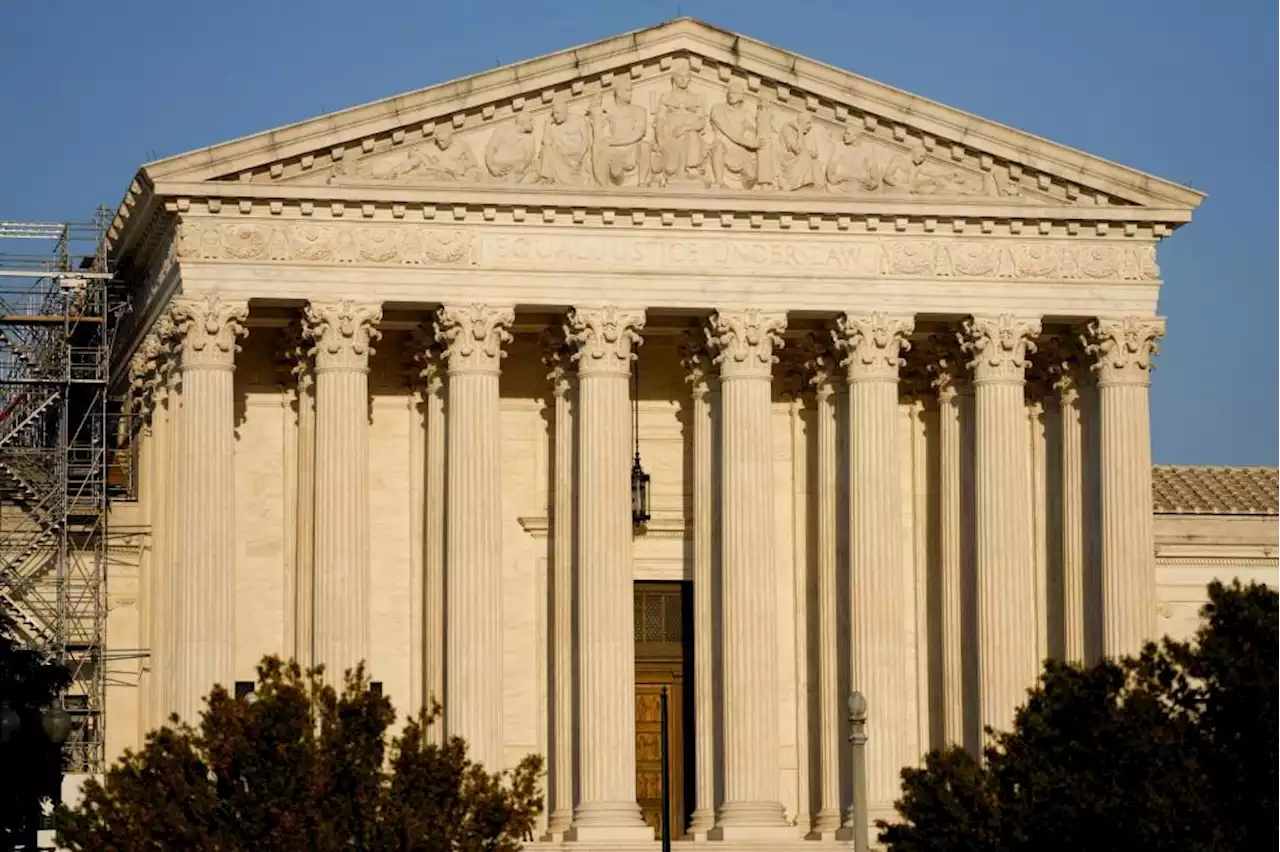Threats abounded as the high court faced constant security challenges, a blistering leak investigation and wounding ethics scandals while struggling to find a new balance.
— including the leak to POLITICO and the subsequent investigation — had yet to be quelled.
Up to that moment, the court rarely spoke about its inner workings, and justices typically refrained from engaging publicly with news reports that drew unflattering attention to them or their conduct. With that issue off the table, Roberts offered a full-throated denunciation of the leak as “a singular and egregious breach” and announced an internal probe into the source of the leak.
Some of those security measures would likely have been put in place if the opinion emerged in the ordinary course in late June, but the early report and the intensity of public reaction to it led to a scramble. Just one week after the disclosure, the Senate passed legislation making explicit the power of the Supreme Court police to protect the immediate families of the justices.
While many outsiders assumed Roberts would simply order the court’s clerks to cooperate with the leak investigation, he instead asked each justice to make such a request of his or her law clerks. Kagan also went on the warpath, giving her clerks a similar dressing down. Kagan would later denounce the leak as “horrible” and an “obvious, blatant violation of the court’s rules,” without speculating on who might be responsible,Within days, it became clear that the leak had taken a serious toll on court morale. Speaking at a conservative gathering in Texas, Thomas said the leak had“Now, that trust … is gone forever,” the court’s most senior justice said.
Within a couple of months of the court’s investigation launching, the law clerks were gone, replaced by a new batch that got much sterner warnings about confidentiality. Another figure key to the probe also headed for the exit: Nelson, the chief deputy marshal.
Alito added a rebuttal to the dissenters, but the only notable deletion from the draft was a rhetorical flourish he dropped about the degree of support for abortion rights in U.S. constitutional law before the late 1960s. “Zero. None,” Alito had written in the draft, but omitted in the final opinion while maintaining his basic point.
“If over time, the court loses all connection with the public and with public sentiment, that’s a dangerous thing for a democracy,” Kagan said. “The court earns its legitimacy by what it does, by the way it behaves.”, but her call to avoid sharp about-faces in precedent seemed squarely aimed at the abortion ruling still reverberating across the country.
Brasil Últimas Notícias, Brasil Manchetes
Similar News:Você também pode ler notícias semelhantes a esta que coletamos de outras fontes de notícias.
 Supreme Court rules against Navajo Nation in Colorado River water claims case - USA TODAYThe Supreme Court has ruled against Navajo Nation in a water case. USA TODAY SCOTUS Correspondent jfritze puts the decision in context, with 5 Things podcast host atltwil:
Supreme Court rules against Navajo Nation in Colorado River water claims case - USA TODAYThe Supreme Court has ruled against Navajo Nation in a water case. USA TODAY SCOTUS Correspondent jfritze puts the decision in context, with 5 Things podcast host atltwil:
Consulte Mais informação »
 Where abortion laws stand in every state a year after the Supreme Court overturned RoeIn the year since the U.S. Supreme Court issued its ruling in Dobbs v. Jackson Women's Health Organization that ended nearly a half-century of a nationwide right to abortion, states have enacted contrasting policies on the issue.
Where abortion laws stand in every state a year after the Supreme Court overturned RoeIn the year since the U.S. Supreme Court issued its ruling in Dobbs v. Jackson Women's Health Organization that ended nearly a half-century of a nationwide right to abortion, states have enacted contrasting policies on the issue.
Consulte Mais informação »
 Is the Supreme Court Ready to Walk Back Last Term’s Historically Awful Guns Ruling?It is not evident the Supreme Court will support a strict historical approach that results in widespread invalidation of the nation’s gun laws, even if that was what was implied by Bruen.
Is the Supreme Court Ready to Walk Back Last Term’s Historically Awful Guns Ruling?It is not evident the Supreme Court will support a strict historical approach that results in widespread invalidation of the nation’s gun laws, even if that was what was implied by Bruen.
Consulte Mais informação »
 Supreme Court rejects Texas and Louisiana challenge to Biden deportation priorities | CNN PoliticsThe Supreme Court, in an 8-1 ruling, revived the Biden administration’s immigration guidelines that prioritize which noncitizens to deport, dismissing a challenge from two Republican state attorneys general who argued the policies conflicted with immigration law.
Supreme Court rejects Texas and Louisiana challenge to Biden deportation priorities | CNN PoliticsThe Supreme Court, in an 8-1 ruling, revived the Biden administration’s immigration guidelines that prioritize which noncitizens to deport, dismissing a challenge from two Republican state attorneys general who argued the policies conflicted with immigration law.
Consulte Mais informação »
 Supreme Court upholds federal law used to prosecute people who encourage illegal immigrationThe Supreme Court on Friday upheld a section of federal law used to prosecute people who encourage illegal immigration, ruling against a California man who offered adult adoptions he falsely claime…
Supreme Court upholds federal law used to prosecute people who encourage illegal immigrationThe Supreme Court on Friday upheld a section of federal law used to prosecute people who encourage illegal immigration, ruling against a California man who offered adult adoptions he falsely claime…
Consulte Mais informação »
 U.S. Supreme Court upholds law against encouraging illegal immigrationA federal law that makes it a crime for a person to encourage illegal immigration does not violate constitutional free speech protections, the U.S. Supreme Court ruled on Friday in upholding the decades-old measure defended by President Joe Biden's administration.
U.S. Supreme Court upholds law against encouraging illegal immigrationA federal law that makes it a crime for a person to encourage illegal immigration does not violate constitutional free speech protections, the U.S. Supreme Court ruled on Friday in upholding the decades-old measure defended by President Joe Biden's administration.
Consulte Mais informação »
